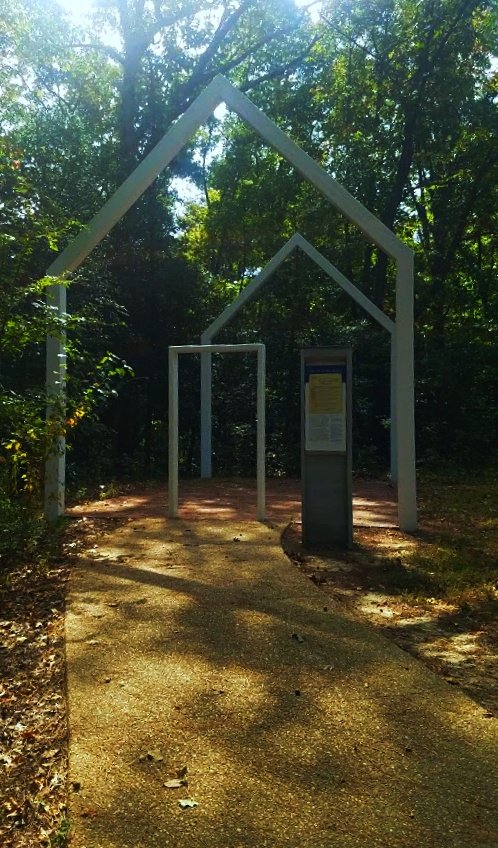We wanted to let our readers know that the Log College Press website is constantly growing. The place for members of the Dead Presbyterians Society to look for new additions to the site is either the Early Access page or the Recent Additions page. Check out some of the new works that have been added to the site in recent months:
A Series of Tracts on the Doctrines, Order, and Polity of the Presbyterian Church in the United States of America, Vols. 9, 11, 12, 13 (1842) — See here.
Daniel Baker, Christ the Mediator: A Sermon (1834); An Affectionate Address to Fathers (1852); and Baptism in a Nutshell (1856, 1877)
Jesse B. Barber, A History of the Presbyterian Church Among Negroes in the United States of America (1936); and Climbing Jacob's Ladder (1952)
David Brainerd — Jonathan Edwards, True Saints, When Absent From the Body, Are Present With the Lord: A Sermon Preached on the Day of the Funeral of Rev. Mr. David Brainerd (1747)
Compilations, Declaration and Testimony of Ministers and Ruling Elders in the Presbyterian Church of the United States, Against the Erroneous and Heretical Acts and Deliverances of the General Assembly of That Church During the Last Five Years (1865); Proceedings of the General Council of the Alliance of Reformed Churches [First (1877); Second (1880); Third (1884); Fourth (1888); Fifth (1892); Sixth (1896); Seventh (1899); and Thirteenth (1929)]; The Sesquicentennial History of Associate Reformed Presbyterian Church: Mainly Covering the Period 1903-1951(1951); The Second Century: A History of the Associate Reformed Presbyterians, 1882–1982 (1982)
John Ewing, Fidelity in the Gospel Ministry: A Sermon, Preached at the Ordination of the Revd. Ashbald [Ashbel] Green, in Philadelphia, May 15, 1787 (1787)
John L. Girardeau, The Remembrance of the Righteous: A Memorial Sermon, Occasioned by the Death of the Rev. David H. Porter, D.D., and Preached in the First Presbyterian Church, Savannah, Ga., Feb. 8th, 1874 (1874)
Margaret Adams Gist, Presbyterian Women of South Carolina (1929)
A.A. Hodge, Evangelical Theology (1890)
Charles Hodge, The Teaching Office of the Church (1848)
George H. Ingram, Biographies of the Alumni of the Log College: Charles McKnight (1928), James McCrea (1929), William Robinson (1929), John Roan (1929), John Campbell (1929), Hamilton Bell (1929), William Dean (1929), David Alexander (1929), Daniel Lawrence (1929), and John Redman (1929)
Walter Lee Lingle, Presbyterians: Their History and Beliefs (1928)
John Gresham Machen, The Issues at Columbus: The Conservative View (1925)
John M. Mason, The Voice of Warning, to Christians, on the Ensuing Election of a President of the United States (1800)
David McAllister, National Reform Manual (1877)
Samuel Miller, An Address, Delivered Before the Board of Foreign Missions of the Presbyterian Church, at an Annual Meeting of the Board, in the Wall-Street Church, New-York, May 6, 1844(1844)
Alexander McLeod and Samuel B. Wylie, The Constitution of the Theological Seminary of the Reformed Presbyterian Church (1811)
Benjamin Morgan Palmer (1818–1902). A Weekly Publication Containing Sermons, Vols. 1&2 (1875–1876); [the original first edition of] The Broken Home; or, Lessons in Sorrow (1890); and Hindrances to Union With the Church: A Letter to An Aged Friend (1891)
Franklin Patton, The Genesis of the Westminster Assembly (1889)
William Swan Plumer. Balm For Wounded Spirits (n.d.)
John Holt Rice (1818–1878), A Memorial Sermon: Commemorative of the Life and Services of the Rev. Thomas Verner Moore, Late Pastor of the First Presbyterian Church, in Nashville, Tenn. (1871)
William H. Sheppard, Atrocities in the Kongo Free State (1900)
John W. Stagg, Calvin, Twisse and Edwards on the Universal Salvation of Those Dying in Infancy(1902)
Mary Tenney, Communion Tokens: Their Origin, History, and Use, With a Treatise on the Relation of the Sacrament to the Vitality and Revivals of the Church (1936)
James H. Thornwell, Our Danger and Our Duty (1862)
Frederick D. Viehe, Proof Texts to Dabney's Systematic Theology (1905)
Geerhardus Vos, The Biblical Importance of the Doctrine of Preterition (1900)
B.B. Warfield, The Proposed New Statement of Presbyterian Doctrine (1901); What is Calvinism?(1904); What Fatalism Is (1904); The First Hymn-Book of Reformation Scotland (1905); The Style of Calvin (1909); Calvin and the Bible (1909); Calvin Among His Friends (1909); Our Seminary Curriculum (1909); and Our Seminary Curriculum: What Ought It To Be (1909)
John M. Wells, Southern Presbyterian Worthies (1936)
Samuel Brown Wylie, The Two Sons of Oil; or, The Faithful Witness For Magistracy & Ministry Upon a Scriptural Basis (1803); and A Sermon on Covenanting (1803)
These are but a small fraction of the titles that have been added in recent months. Also, we are adding quotes to the DPS Quote Blog almost every day. We invite you to check back often to see what's new. Thank you, as always, for your interest and support in what we do here at Log College Press.
Blessings!



















